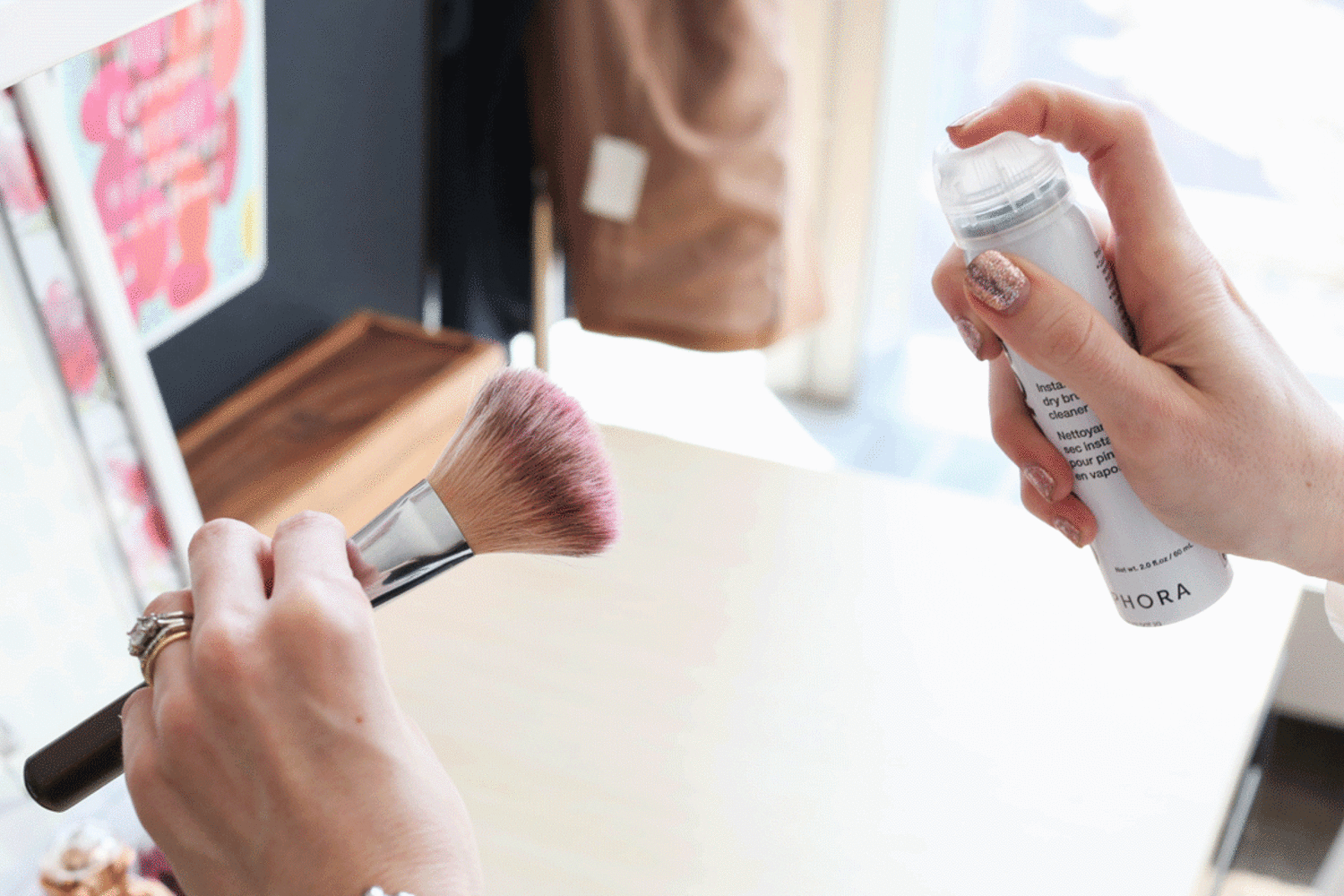How to Clean Makeup Brushes & How Often to Do It

How to clean makeup brushes the right way might seem obvious, but it’s a little more complicated than just wash, rinse, and repeat. Yes, it can be a bit of a pain, but washing your brushes regularly makes a world of difference. Considering they’re an essential part of your makeup routine—what good is the perfect foundation if you have nothing to apply it with?—it’s worth taking the time to learn to treat them right.
In addition to looking better on your vanity, clean brushes actually perform better. Dirt, oil, and makeup buildup can weigh down brush hairs, making them harder to work with—which can mean streaky foundation and patchy blush down the line. Dirty brushes can also harm your skin as well. “We know that makeup brushes grow bacteria and fungus,” says Loretta Ciraldo, M.D., dermatologist and founder of Dr. Loretta skin care. That bacteria paired with the aforementioned dirt and oil can lead to breakouts and even dermatitis in some cases.
In order to avoid that, we asked Ciraldo and makeup artist Kasey Spickard to share their best tips for keeping brushes squeaky clean. Read on to have all your questions answered, including how often to wash your brushes, how to do it, and the best cleansers for the job.
How often to clean makeup brushes
No offense, but you’re probably not washing your brushes often enough. “Clean brushes are essential,” says Spickard, who says that ideally you should be disinfecting your brushes after every use with a liquid cleanser (this is non-negotiable if you’re a makeup artist). But he gets that’s not exactly realistic for must of us and says a deep clean once a week is fine. Ciraldo recommends giving them a good scrub at least once every two weeks, more if there’s visible makeup buildup, and to be extra diligent about cleaning your makeup sponges, like Beautyblenders, since they’re more prone to bacteria.
What to use to clean makeup brushes
You have a few options when it comes to what to use to wash your brushes. Spickard prefers to use a liquid brush cleanser like Cinema Secrets between uses since it’s “able to penetrate the bristles and really get in and break up the makeup.” However, he warns that the liquid cleanser can leave a bit of a residue, so he likes to use the Beautyblender Solid Blendercleanser for his weekly deep-clean. “I also always have 70% rubbing alcohol with me,” he says. “It’s great at removing things like waterproof mascara that even the best brush cleaners struggle with. It’s also the best disinfectant and cleaner to truly sanitize your brushes.”
But you don’t have to buy a separate soap for your brushes if you prefer not to—the shampoo hanging out in your shower will likely do the trick. Just make sure it’s sulfate-free, says Ciraldo. “While you want to rinse the brushes out thoroughly, it’s good to avoid sulfates that may possibly leave a residue on the brush and lead to some irritation or pore clogging.” Some pros also recommend gentle dishwashing liquid for a thorough clean.